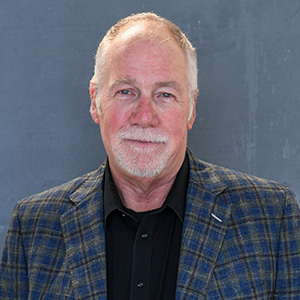When you think about the future of your organization, what do you see?
If you have a current leadership team in place, one that excels and in which you can trust, you might be feeling good about what’s to come. That is, unless those leaders are of an age at which they are thinking about retirement.
Who, then, takes their place?
The fact is, about 10,000 Baby Boomers retire each day. That number is expected to continue to grow until at least 2030. And that is why it’s crucial to focus on developing the next generation of leaders now, in order to foster organizational success going forward.
Challenges in Leadership Development
Many companies do not prioritize a leadership succession strategy. They believe there are other important initiatives to focus on. However, without effective leadership in place, those initiatives likely won’t succeed, at least not long term.
Even among companies that start to focus on the next generation of leaders, many do it by throwing their up-and-coming people into the deep end of the pool to see who can swim. While putting people in challenging positions to see how they will work with some people, without providing them the guidance to excel may offer a short-term solution. It’s not sustainable.
Another issue is that many people do not take initiative on their own to develop themselves professionally in ways that prepare them for the next level of leadership. This is not necessarily their “fault.” They may have progressed in environments where leadership development was secondary to other markers of success
Many individuals in our younger generations state that they have different professional goals. “Living” to them often means making time for life experiences as opposed to climbing the professional ladder. The Great Resignation aside, companies are seeing an increasing number of younger employees seek out the opportunities that better align with their lifestyle objectives.
Creating a Strategy for Leadership Development
If more companies took the approach of Major League Baseball, they would be in a much better position to develop strong leaders. At every step of the way, from being drafted to (or joining) a team to playing at the professional level, players are coached to their potential. Another example involves the Montessori method of education. Teachers give students the tools they need to navigate real-world situations. It’s an engaging environment, rather than the traditional classroom structure of teacher versus student.
At Human Emergence Group, we take similar approaches. In our leadership development programs, we help organizations identify certain core competencies among leaders. These competencies are a cluster of behaviors that differentiate superior performance. For example, initiative, influence, results orientation, dynamic engagement, communication, and team building.
Each organization will be different in terms of which competencies are most important to them. Some organizations are intent on driving results and need help developing and executing the behaviors that generate desired results. Others say team-building is their most critical competency. One recurring challenge is breaking down silos and improving cooperation and communication— – the competency of collaboration.
An additional and significant component of leadership development involves feedback. Feedback often gets a bad rap because it’s perceived as “criticism.” That is not what feedback is designed to do. Rather, it is the mechanism by which people learn where gaps in their performance lie, as well as where they have superior skills and performance.
Let’s say you’re a salesperson who is strong at persuading and influencing, but you rarely pick up the phone or email prospects. The latter is what needs development. Yet, that doesn’t take away from the fact that you’re really good at influence. It’s not enough to only focus on one’s strengths. You cannot maximize your performance unless you know what’s not currently working.
Leadership Development’s Role in Improving Employee Retention
Organizations that focus on developing their next generation of leaders also garner an additional benefit: improved retention. I mentioned the Great Resignation, which clearly was (and still is) a problem. How many of those organizations—the ones that lost a significant portion of their workforce—do you think emphasized leadership development? The people who left often did not feel valued enough to stay.
We have to start thinking more about what retention actually means. It’s not about holding more breakroom parties or happy hour outings. Retention is rooted in development, and along with development comes perceived value.
Dr. Judith Wright speaks about the Transformational Imperative and how every human being really wants to be who they can become. If organizations are truly committed to instilling that concept within their development practices, they will undoubtedly improve retention rates.
Organizational Culture Is Also Important
Sometimes, organizations need to work from the top down to optimize their development potential. In an environment where blame and mistake-based punishment are the norm, leadership development has no room to thrive. Empowerment among team members is nonexistent.
Those types of organizations really need to take a hard look at their operational behaviors before the real work of leadership development can be accomplished. This is not meant to be a judgment about those companies. In many cases, current leaders inherited that culture from those who preceded them. It will take a concerted effort to reimagine the organization’s behavioral framework.
Now Is the Time for Leadership
The retirement dilemma is not going away. Even if it slows, organizations will still need to determine how and when they will fill the eventual void. Those that take action now—and do it in the most effective way—have a distinct advantage.
If you’re looking to develop your next generation of leaders, but could use some guidance on honing in on the best way to do that, HEG is here to help.
Schedule a call with one of our experts if you’d like a free consultation.








